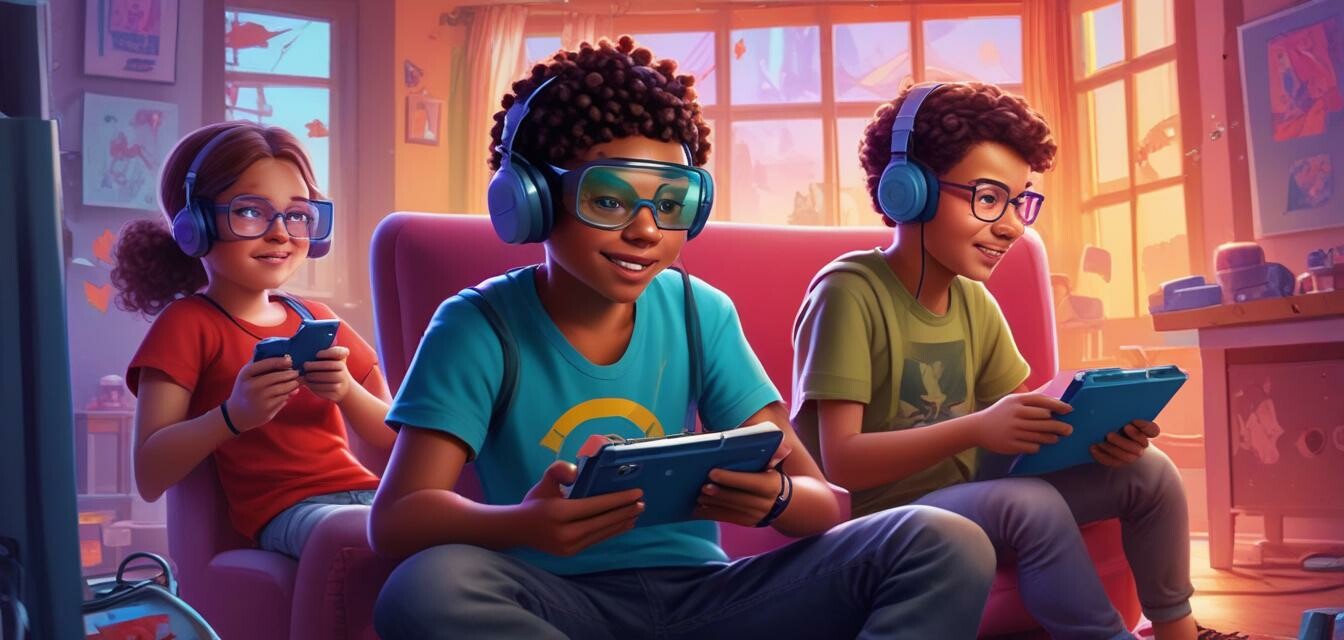
How Gaming is Influencing Child Development in 2025
Key Takeaways
- Modern gaming fosters creativity and problem-solving skills in children.
- Interactive play enhances social skills and teamwork.
- Gaming technologies promote learning in a fun and engaging manner.
- Parental involvement plays a crucial role in maximizing benefits of gaming.
- The balance between screen time and offline activities is essential for well-rounded development.
As we step into 2025, the gaming landscape has evolved dramatically, influencing not just entertainment but also child development in various profound ways. From interactive video games to immersive virtual reality experiences, modern gaming technologies are paving the way for a new era of growth and learning. In this article, we will explore how gaming is positively shaping the developmental outcomes for children today.
Gaming as a tool for creativity
One of the most significant contributions of gaming to child development is its ability to foster creativity. Games that allow users to build, create, and explore can lead to enhanced imaginative skills.
Examples of creative gaming themes
- Building and design games (e.g., constructing cities or landscapes)
- Adventure games with storytelling elements
- Simulation games for real-world problem-solving
Enhancing problem-solving skills
Modern games often present challenges that require strategic thinking and problem-solving skills. Analyzing different outcomes and developing solutions within game scenarios encourages critical thinking.
| Type of Game | Skills Developed | Examples |
|---|---|---|
| Puzzle Games | Logic, Pattern Recognition | Tetris, Portal |
| Adventure Games | Critical Thinking, Strategy | Zelda, Uncharted |
| Role-playing Games (RPGs) | Decision Making, Strategy | Final Fantasy, Skyrim |
Social interaction and teamwork
Multiplayer games encourage collaboration among children, promoting social interaction and teamwork. Children learn how to communicate effectively, resolve conflicts, and work together to achieve common goals.
Benefits of multiplayer gaming
- Improved communication skills
- Enhanced empathy through role-playing
- Development of leadership qualities
The role of learning in gaming
Today’s games also incorporate educational elements that can significantly benefit learning outcomes. Educational gaming engages children in subjects such as math, science, and language arts through fun, interactive experiences.
Pros
- Engages children in learning
- Promotes critical thinking
- Fosters social skills through teamwork
- Encourages creativity and self-expression
Cons
- Potential for overexposure to screen time
- Risk of inappropriate content without oversight
- Can lead to sedentary lifestyle if not balanced with physical activities
The significance of parental involvement
While gaming has various developmental advantages, parental involvement is essential to guide children toward more suitable content, discuss experiences, and promote a balanced lifestyle. Parents should actively engage with their children in gaming activities to maximize benefits.
Ways parents can get involved
- Playing games together to understand the content
- Setting limits on screen time and discussing gaming experiences
- Encouraging educational games that align with learning objectives
Balancing gaming and offline activities
As beneficial as gaming can be, it is critical to maintain a balance between screen time and offline activities. Physical play, outdoor activities, and social interactions beyond the gaming screen are vital components of a child’s growth.
Strategies for maintaining balance
- Scheduling gaming time and outdoor playtime
- Organizing family game nights with board games or outdoor activities
- Promoting physical activities and sports as complements to gaming
Conclusion
In conclusion, gaming is much more than a pastime; it can be a powerful tool for enhancing child development in today’s rapidly evolving world. By harnessing its potential positively, we can ensure that gaming complements educational goals and encourages valuable skills. As we move further into 2025, let's embrace these opportunities while ensuring that children enjoy well-rounded, balanced experiences in both their gaming and everyday lives.
Explore more about gaming trends
To stay updated on the latest in gaming and kids’ electronics, check out our categories on News and Trends and Buying Guides.